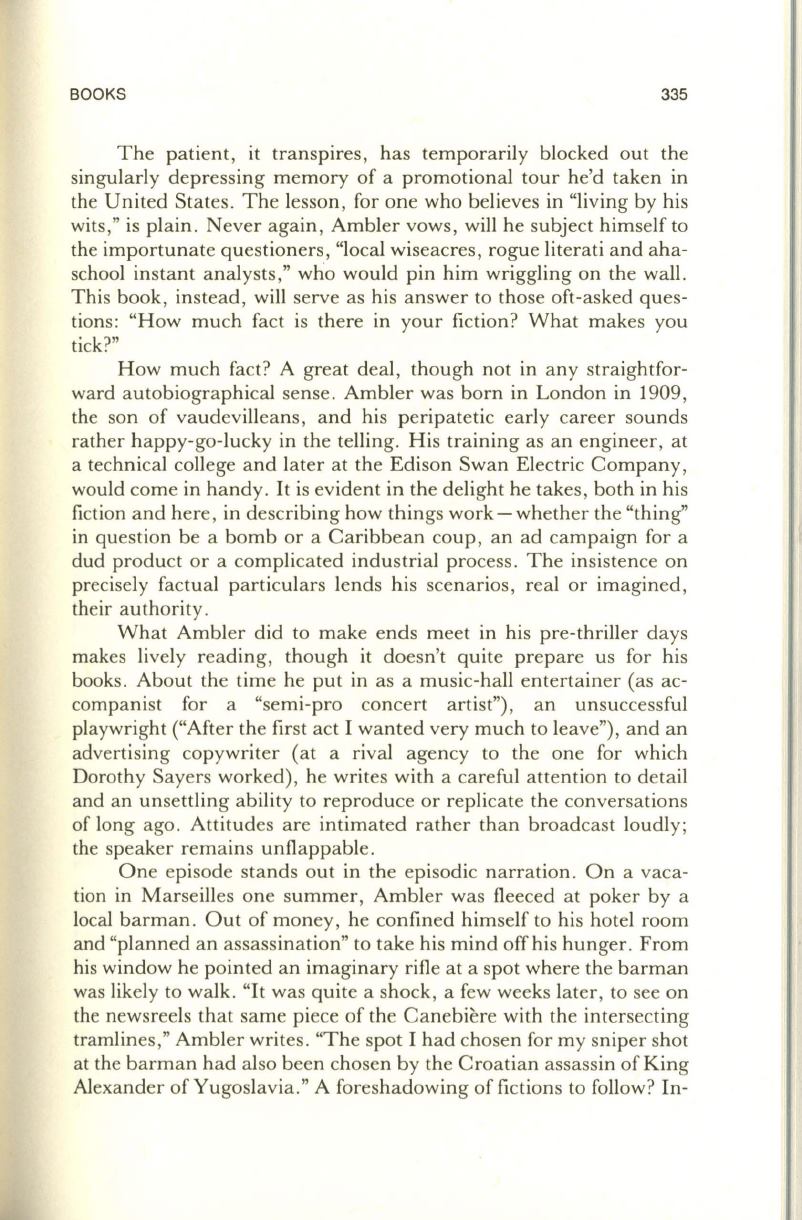
BOOKS
335
The patient, it transpires, has temporarily blocked out the
singularly depressing memory of a promotional tour he'd taken in
the United States. The lesson, for one who believes in "living by his
wits," is plain . Never again, Ambler vows, will he subject himself to
the importunate questioners, "local wiseacres, rogue literati and aha–
school instant analysts," who would pin him wriggling on the wall.
This book, instead, will serve as his answer to those oft-asked ques–
tions : "How much fact is there in your fiction? What makes you
tick?"
How much fact? A great deal, though not in any straightfor–
ward autobiographical sense. Ambler was born in London in 1909,
the son of vaudevilleans, and his peripatetic early career sounds
rather happy-go-lucky in the telling. His training as an engineer, at
a technical college and later at the Edison Swan Electric Company,
would come in handy .
It
is evident in the delight he takes, both in his
fiction and here, in describing how things work-whether the "thing"
in question be a bomb or a Caribbean coup, an ad campaign for a
dud product or a complicated industrial process . The insistence on
precisely factual particulars lends his scenarios, real or imagined,
their authority.
What Ambler did to make ends meet in his pre-thriller days
makes lively reading, though it doesn't quite prepare us for his
books. About the time he put in as a music-hall entertainer (as ac–
companist for a "semi-pro concert artist"), an unsuccessful
playwright ("After the first act I wanted very much to leave"), and an
advertising copywriter (at a rival agency to the one for which
Dorothy Sayers worked), he writes with a careful attention to detail
and an unsettling ability to reproduce or replicate the conversations
of long ago. Attitudes are intimated rather than broadcast loudly ;
the speaker remains unflappable .
One episode stands out in the episodic narration. On a vaca–
tion in Marseilles one summer, Ambler was fleeced at poker by a
local barman. Out of money, he confined himself to his hotel room
and "planned an assassination" to take his mind off his hunger. From
his window he pointed an imaginary rifle at a spot where the barman
was likely to walk.
"It
was quite a shock, a few weeks later, to see on
the newsreels that same piece of the Canebiere with the intersecting
tramlines ," Ambler writes. "The spot I had chosen for my sniper shot
at the barman had also been chosen by the Croatian assassin of King
Alexander of Yugoslavia." A foreshadowing of fictions to follow? In-


